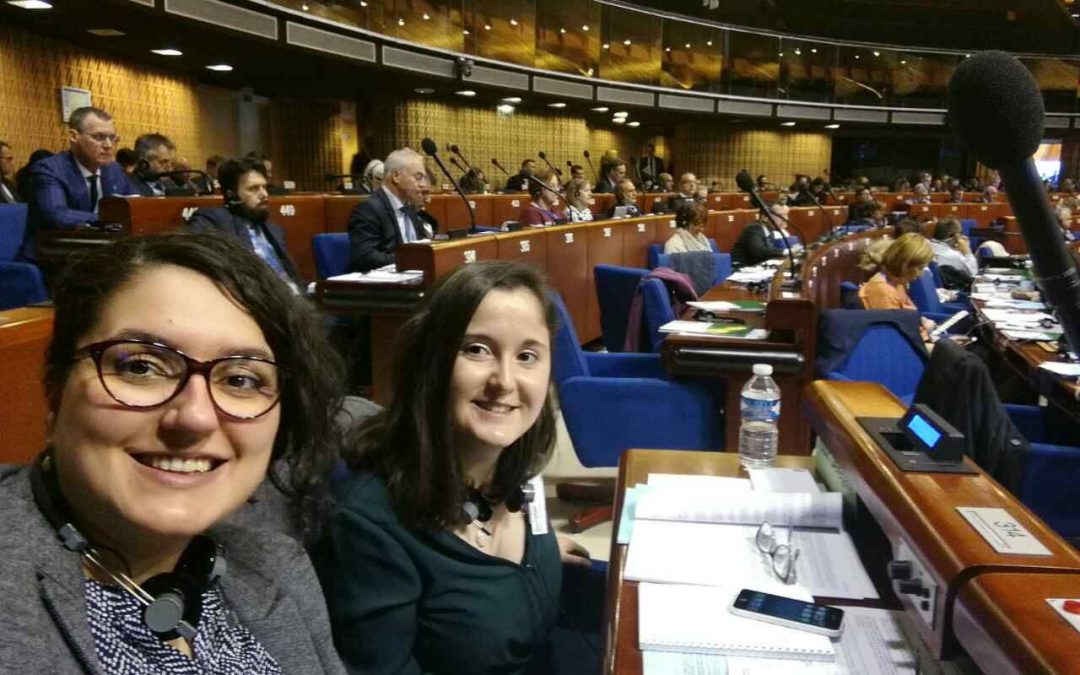Dragana Jovanovska, the acting Secretary General of CID, attended the 32nd Session of the Congress of Local and Regional Authorities of the Council of Europe, held in Strasbourg between 28-30 March 2017, as a youth delegate.
The Congress is a pan-European political assembly, the 648 members of which hold elective office (they may be regional or municipal councilors, mayors or presidents of regional authorities) representing over 200,000 authorities in 47 European states.
The topic for the 2017 sessions of the Congress is „Decentralised policies for the successful integration of refugees”, focusing on finding politically viable solutions for the current refugee crisis. During the 3 working days, the attendees discussed topics related to different issues that Europe is facing at the moment on local and regional level, such as the adoption of the document Fact-finding mission on the situation of local elected representatives in Turkey, the report From reception to integration: the role of local and regional authorities facing migration, the charter of the European Political Parties for a non-racist society, but also the voting of a very important document for all young people – Forever young? The role of youth policies and youth work at local and regional levels in supporting young people’s transition to autonomy and working life.
This document analyses the current situation of young people in Europe in their transition to adulthood and reviews the main challenges to this period, with examples of good practice on how it should be accompanied at the local and regional level. Young people should be considered to be equal citizens and legitimate partners for public authorities, contributing to the construction of European societies. The report stresses the importance of investing in youth who can be viewed as a welfare indicator for the society and offers to search for new forms of local participation encouraging young people to get involved in public life.
Recommendations are addressed to local and regional authorities concerning the design and implementation of innovative youth policies and as regards co-operation around youth work, youth policy, youth research and with the young people themselves. A variety of actions are recommended at local and regional levels to enable youth, including the most vulnerable among them, to achieve autonomy and to access professional life, particularly in terms of information, employment, education, housing and health.
I believe that processes like this are very important, and it is crucial that young people also contribute directly to the decision making processes that are taking place on local, regional, but also European level. The engagement of young people provides them with the means and opportunity that their voice is heard, but also contributes to the sustainable growth towards better societies. We tend to say that young people are the future, but I do not agree. Young people are also the present and they deserve to be heard.


